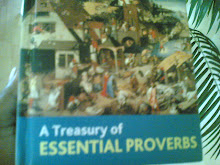The Beijing Olympic scheduled is between August 8 and August 24 2008.
Unveiled Competition Schedule of Beijing 2008 Olympic Games
Date Games Medals
August 6&7 Football Preliminary
August 8 Opening Ceremony
August 9 Rowing, Badminton, Basketball, Boxing, Cycling (Road) Final, Equestrian (Eventing), Fencing Final, Football, Gymnastics (Artistic), Weightlifting Final, Handball, Judo Final, Aquatics (Swimming), Shooting Final, Sailing, Volleyball, Volleyball (Beach) 7
August 10 Rowing, Badminton, Basketball, Boxing, Cycling (Road) Final, Equestrian (Eventing), Fencing Final, Football, Gymnastics (Artistic), Weightlifting Final, Handball, Hockey, Judo Final, Aquatics (Swimming) Final, Aquatics (Water Polo), Tennis, Shooting Final, Archery Final, Sailing, Volleyball, Volleyball (Beach) 14
August 11 Rowing, Badminton, Basketball, Boxing, Canoe/Kayak (Slalom), Equestrian (Eventing), Fencing Final, Weightlifting Final, Handball, Hockey, Judo Final, Aquatics (Swimming) Final, Aquatics (Diving) Final, Aquatics (Water Polo), Tennis, Shooting Final, Archery Final, Sailing, Volleyball, Volleyball (Beach) 13
August 12 Rowing, Badminton, Basketball, Boxing, Canoe/Kayak (Slalom) Final, Equestrian (Eventing) Final, Fencing Final, Football, Gymnastics (Artistic) Final, Weightlifting Final, Handball, Hockey, Judo Final, Wrestling (Greco-Roman) Final, Aquatics (Swimming) Final, Aquatics (Diving) Final, Aquatics (Water Polo), Softball, Tennis, Shooting Final, Archery, Sailing, Volleyball, Volleyball (Beach) 19
August 13 Rowing, Badminton, Baseball, Basketball, Boxing, Canoe/Kayak (Slalom), Cycling (Road) Final, Equestrian (Eventing), Fencing Final, Football, Gymnastics (Artistic) Final, Weightlifting Final, Handball, Hockey, Judo Final, Wrestling (Greco-Roman) Final, Aquatics (Swimming) Final, Aquatics (Diving) Final, Aquatics (Water Polo), Softball, Tennis, Table Tennis, Shooting Final, Archery Final, Sailing, Volleyball, Volleyball (Beach) 17
August 14 Rowing, Badminton, Baseball, Basketball, Boxing, Canoe/Kayak (Slalom) Final, Equestrian (Dressage), Fencing Final, Gymnastics (Artistic) Final, Handball, Hockey, Judo Final, Wrestling (Greco-Roman) Final, Aquatics (Swimming) Final, Aquatics (Water Polo), Softball, Tennis, Table Tennis, Shooting Final, Archery Final, Sailing, Volleyball, Volleyball (Beach) 17
August 15 Athletics Final, Badminton Final, Baseball, Basketball, Boxing, Cycling (Track) Final, Equestrian (Jumping) Final, Fencing Final, Football, Gymnastics (Artistic) Final, Weightlifting Final, Handball, Hockey, Judo Final, Aquatics (Swimming) Final, Aquatics (Water Polo), Softball, Tennis, Table Tennis, Shooting Final, Archery Final, Sailing, Volleyball, Volleyball (Beach) 16
August 16 Athletics Final, Rowing Final, Badminton Final, Baseball, Basketball, Boxing, Cycling (Track) Final, Equestrian (Dressage), Fencing Final, Gymnastics (Trampoline) Final, Weightlifting Final, Handball, Hockey, Wrestling (Freestyle) Final, Aquatics (Swimming) Final, Equestrian (Dressage), Aquatics (Water Polo), Softball, Tennis Final, Table Tennis, Shooting Final, Archery Final, Sailing, Volleyball, Volleyball (Beach) 30
August 17 Athletics Final, Rowing Final, Badminton Final, Basketball, Boxing, Cycling (Track) Final, Equestrian (Jumping), Fencing Final, Football, Gymnastics (Artistic) Final, Weightlifting Final, Handball, Hockey, Wrestling (Freestyle) Final, Aquatics (Swimming) Final, Aquatics (Synchronized Swimming), Aquatics (Diving) Final, Aquatics (Water Polo), Softball, Tennis Final, Table Tennis Final, Shooting Final, Sailing Final, Volleyball, Volleyball (Beach) 34
August 18 Athletics Final, Baseball, Basketball, Boxing, Canoe/Kayak (Flat water), Cycling (Track) Final, Equestrian (Jumping) Final, Football, Gymnastics (Artistic) Final, Gymnastics (Trampoline) Final, Weightlifting Final, Handball, Hockey, Aquatics (Synchronized Swimming), Aquatics (Diving), Aquatics (Water Polo), Softball, Table Tennis Final, Triathlon Final, Sailing Final, Volleyball, Volleyball (Beach) 18
August 19 Athletics Final, Baseball, Basketball, Boxing, Canoe/Kayak (Flat water), Cycling (Track) Final, Equestrian (Dressage) Final, Football, Gymnastics (Artistic) Final, Gymnastics (Trampoline) Final, Weightlifting Final, Handball, Hockey, Wrestling (Freestyle), Aquatics (Synchronized Swimming), Aquatics (Diving) Final, Aquatics (Water Polo), Table Tennis, Triathlon Final, Sailing, Volleyball, Volleyball (Beach) 20
August 20 Athletics Final, Baseball, Basketball, Boxing, Canoe/Kayak (Flat water), Cycling (Mountain bike),Handball, Hockey, Wrestling (Freestyle) Final, Aquatics (Swimming), Aquatics (Synchronized Swimming) Final, Aquatics (Diving), Aquatics (Water Polo), Softball, Taekwondo Final, Table Tennis, Sailing Final, Volleyball, Volleyball (Beach) Final 11
August 21 Athletics Final, Basketball, Canoe/Kayak (Flat water), Cycling (Mountain bike) Final, Equestrian (Jumping) Final, Football Final, Gymnastics (Rhythmic), Handball, Hockey, Wrestling (Freestyle) Final, Aquatics (Swimming) Final, Aquatics (Diving) Final, Aquatics (Water Polo) Final, Modern Pentathlon Final, Softball Final, Taekwondo Final, Table Tennis, Sailing Final, Volleyball, Volleyball (Beach) Final 23
August 22 Athletics Final, Baseball, Basketball, Boxing, Canoe/Kayak (Flat water) Final, Cycling (BMX) Final, Football, Gymnastics (Rhythmic), Handball, Hockey Final, Aquatics (Synchronized Swimming), Aquatics (Diving), Aquatics (Water Polo), Modern Pentathlon Final, Taekwondo Final, Table Tennis Final, Volleyball, Volleyball (Beach) Final 20
August 23 Athletics Final, Baseball Final, Basketball Final, Boxing Final, Canoe/Kayak (Flat water) Final, Cycling (BMX) Final, Football Final, Gymnastics (Rhythmic) Final, Handball Final, Hockey Final, Aquatics (Synchronized Swimming) Final, Aquatics (Diving) Final, Taekwondo Final, Table Tennis Final, Volleyball Final 31
August 24 Closing Ceremony, Athletics Final, Basketball Final, Boxing Final, Gymnastics (Rhythmic) Final, Handball Final, Aquatics (Water Polo) Final, Volleyball
Final 12
Essential Knowledge of Beijing Olympics
Volunteers Symbol
The symbol shows three people dancing surmounted by two interwoven red hearts; a symbol that conveys a deep meaning.
The hearts represent the bond between the volunteers, the athletes, the Olympic family and guests, while the dancers symbolize a friendly attitude and a dedicated spirit. The Chinese calligraphy art form has been used to depict the dancers and the symbol sets off the Olympic Emblem - Chinese Seal, Dancing Beijing to perfection.
Theme Slogan
‘One World, One Dream’ is the simple but meaningful slogan adopted for the Beijing Olympic Games, reflecting fully the Olympic spirit and a common dream shared by people worldwide. The value contained in one of the three concepts of Beijing Olympics - People’s Olympics is also reflected in this slogan. With 1.3 billion people, China is endeavoring to build a peaceful world, in which people live in harmony and cooperate with each other. Since the release of the slogan ‘One world, One Dream’, it has replaced ‘New Beijing, Great Olympics’ which was the slogan used during the Beijing bid for the Olympic Games.
Environmental Symbol
The environmental symbol of the Beijing 2008 Olympic Games depicts the ‘Green Olympics’ (one of the three concepts of the Games). The symbol is of a green tree with a human figure below it.
Drawn with a single stroke, as a fluttering stripe of color, it resembles the canopy of a tree filled with vitality and hope. Together with the figure beneath it, the symbol looks like a big tree reaching for the sky and conveys a meaning of harmony between mankind and nature. As the man is drawn in the Chinese calligraphy art form, it contrasts the Olympic Emblem.
Olympic Mascot
‘Fuwa’ composed of five images; those of a fish, a panda, the Olympic flame, a Tibetan antelope and a swallow - has been created as the mascot for the Beijing 2008 Olympic Games. The mascot has been designed to convey a message of friendship and peace together with the dream that mankind and nature can live in great harmony.
Each of the five images has been given a nice name - Beibei, Jingjing, Huanhuan, Yingying and Nini. When these are read together thus ‘Bei Jing Huan Ying Ni’ it is actually Chinese for ‘Welcome to Beijing’. Each image conveys different wishes and meanings: Beibei (the fish), symbolizes prosperity and harvest; Jingjing, a lovely panda symbolizes the harmonious existence between human and nature; Huanhuan (the Olympic flame), regarded as the elder brother of the five, expresses the Olympic spirit, while Yingying, the Tibet antelope wishes everyone in the world good health and the swallow Nini brings happiness and good luck. As the five images are colored blue, black, red, yellow and green respectively, Fuwa matches the Five Olympic Rings.
Olympic Emblem
Named ‘Chinese Seal, Dancing Beijing’, the emblem of Beijing Olympic Games has three parts - the image of a dancing people, the words ‘Beijing 2008′ and the Five Olympic Rings.
The combination of the dancing people created by the Chinese seal and the words ‘Beijing 2008′ written in the Chinese calligraphy art form below it fully reflects Chinese culture. It also represents the vitality of China. Like the dancing people in the emblem, Beijing will welcome friends and guests from all parts of the world in its friendly embrace.
Olympic Torch
Seventy-two centimeters in height and weighing 985 grams, the Beijing 2008 Olympic Games’ torch is scroll shaped and embellished with a picture of the ‘Lucky Cloud’. As the ‘Lucky Cloud’ is one of the Chinese traditional cultural symbols, the torch is endowed with a Chinese flavor. It differs from previous Olympic torches as it is strikingly lacquered red and silver.
The light aluminium alloy torch is well designed to have the ability to resist low temperatures, low pressure and variable wind directions and also easy to carry. Additionally, it is environmentally friendly as it is fuelled by propane gas. The torch was researched and devised exclusively by the Chinese and so is characteristically uniquely Chinese.
Click to get the Torch Relay Route for Beijing 2008 Olympics.
Olympic Medal
The medal for Beijing Olympic Games is elegantly exceptional. Differing from past Olympic Medals, it is the first one that is not made totally of gold. Jade, the traditional Chinese craft standing for the dignity and virtue, was inlaid in the medal endowing it with unusual importance.
On the obverse, the traditional IOC design - goddess of victory Nike and the Panathinaikos Arena is adopted. On the reverse, the Beijing Games emblem is engraved in the jade which is inlaid in the medal. The medal’s design is a good combination of Chinese and Western culture making it a significant piece of artwork in Olympic History.
Three Concepts:
Green Olympics, High-tech Olympics and People’s Olympics, the three concepts of Beijing Olympic Games states the determination and ambition that Beijing will host a great Olympic Games in 2008.
Green Olympics: Protecting the environment and resource, and maintaining an ecological balance are the three main aims to realize at the Green Olympics. Beijing has already promised to spend US $ 6.6 billion to improve the environment. In the not too distant future, coal will be replaced by the clean natural and liquid natural gas, at the same time solar power will be more widely used. Waste and sewage systems will be improved to recycle resources. Many factories will be moved out of the city to help improve the environment of Beijing. In addition, reforestation projects are being undertaken in both the mountains and plains surrounding the city will help to reduce the dust and sandstorms. The concept will not only be displayed through the change of environment, but also from the improvement of public awareness of the environment.
High-tech Olympics: High-tech is also a highlight of the Beijing Olympics. Broad Band, GPS technology and the mobile communications network will be greatly improved during the preparations for the Beijing Olympics. At that time, an integrated transport system will ensure the efficient movement of guests during the Games while Multi-lingual Translator Machines will provide an invaluable service for them. High-tech will also be used for weather forecasts and throughout the Olympic stadiums, etc.
People’s Olympics: The spread of the Olympic Spirit as well as the unique Chinese culture is the main aim of the People’s Olympics. Beijing has already set up a program for ensuring everyone uses correct manners and etiquette in schools, offices, venues and even in daily life of the public at large. More and more hotels, restaurants, museums, galleries, theaters and tea houses are making full preparations as they wait for guests to arrive from all over the world. Also, there is a focus on the protection of Beijing’s ancient cultural relics, buildings, customs, arts and crafts etc. in order to make the Beijing Olympics a harmonious meeting of the West and China, together with an unrivaled service to both Olympians and journalists alike with comfortable accommodation, delicious food and efficient means of communication.
Subscribe to:
Post Comments (Atom)









.jpg)
.jpg)
.jpg)









No comments:
Post a Comment